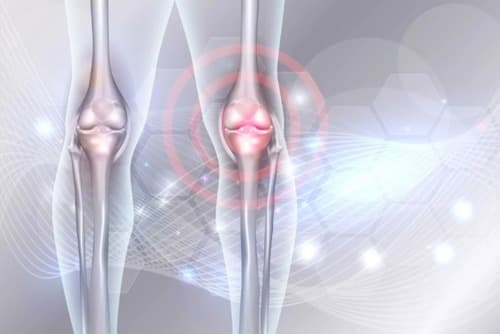Optimizing Joint Health: Strategies to Keep Your Joints Strong and Pain-Free
Understanding Joint Health
Joint health is a critical aspect of overall well-being. Your joints, the connections between bones, play a pivotal role in enabling movement and providing stability.
As you age, or due to certain conditions and lifestyle factors, joint health can deteriorate, leading to pain and limited mobility.
The Importance of Joint Health
Strong and pain-free joints are essential for:
- Supporting your mobility and independence.
- Engaging in physical activities and exercise.
- Maintaining a high quality of life as you age.
Strategies for Joint Health

Optimizing joint health involves a combination of proactive measures and lifestyle choices. Here are strategies to help you keep your joints in top condition:
Maintain a Healthy Weight
Excess body weight places additional stress on your joints, particularly on weight-bearing joints like the knees and hips. Losing weight if you’re overweight or obese can significantly reduce joint pain and improve mobility.
Stay Active and Exercise Regularly
Regular physical activity helps strengthen the muscles around your joints, providing better support. Engage in low-impact exercises like swimming, cycling, or yoga to improve joint flexibility and reduce the risk of injuries.
Eat a Nutrient-Rich Diet
A balanced diet rich in nutrients can support joint health. Consider including foods with anti-inflammatory properties, such as fatty fish (like salmon), leafy greens, and berries, in your diet. These foods can help reduce inflammation in the joints.
Stay Hydrated
Proper hydration is essential for maintaining joint lubrication. Drink an adequate amount of water daily to support your joints’ ability to move smoothly and without discomfort.
Protect Your Joints
If you engage in sports or activities that put stress on your joints, consider using protective gear like knee pads or wrist supports. Taking precautions can help prevent injuries that may lead to long-term joint problems.
Listen to Your Body
Pay attention to any signs of joint discomfort or pain. If you experience persistent joint pain, consult a healthcare professional for a proper diagnosis and treatment plan. Early intervention can prevent further damage.
Supplements for Joint Health

In addition to lifestyle changes, some people find relief from joint-related issues by taking supplements:
- Glucosamine and Chondroitin: These supplements may help reduce joint pain and improve joint function, particularly in individuals with osteoarthritis.
- Omega-3 Fatty Acids: Found in fish oil supplements, omega-3 fatty acids have anti-inflammatory properties that can benefit joint health.
- Turmeric/Curcumin: Known for its anti-inflammatory properties, turmeric supplements may help reduce joint pain and stiffness.
Before taking any supplements, consult with a healthcare provider to ensure they are safe and suitable for your specific needs.
Conclusion: Prioritizing Joint Health
Optimizing joint health is essential for maintaining an active and pain-free lifestyle. By following these strategies, you can support your joints and reduce the risk of joint-related issues.
Remember that everyone’s joints age differently, and individual needs may vary. Consult with a healthcare provider or a rheumatologist for personalized advice on maintaining strong and pain-free joints.
